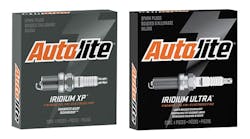Mobility as a Service (MaaS), also known as car-sharing or ride-sharing, is having a major impact on consumer transportation today and is predicted to grow exponentially over the next decade. Companies like Uber, Lyft and ZipCar, as well as electric vehicles and autonomous vehicles, are widely forecast to change the landscape of mobility as we now know it. Predictions include a compound annual growth rate of 23 percent over the next 12 years and aggregate market capitalization outstripping the current OEM’s market capitalization by almost four to one in less than four years.
What is less talked about, however, is the automotive retailer’s role in the new MaaS environment, and how car dealers can capitalize on this trend—both now and in the future. As the software used to facilitate MaaS becomes more of a commodity than an innovation, and current MaaS providers move past the investor finance stage of development, the timing is right for the innovative automotive retailer to utilize MaaS as a new profit center for the dealership.
That’s according to John Possumato, the CEO of Automotive Mobile Solutions, a mobile technology company dedicated to helping automotive retailers.
“Who better than today’s car dealer to participate—either directly or indirectly—in the car-sharing/ride-sharing environment, with the lowest cost of acquisition and servicing of the asset (the vehicle), and convenient locations across the entire country (with overhead already paid for, so all incremental net revenue falls directly to the bottom line)?” he says.
Possumato is a firm believer that those who get their feet wet now and master the processes and relationships necessary will be primed to take advantage of future MaaS opportunities.
Generally, the conversation surrounding MaaS is about its threat. So, let’s start with that: What is the threat of MaaS?
Obviously, all of these statistics means that there will be fewer private owners. And a lot of people think that EVs and robotaxis will require less service, too. But here’s what I would say. The last half won’t happen anytime soon. And for the others, you have to balance out those fewer vehicles with more usage. The average private owner uses their vehicle 4 percent of the time. The average shared vehicle is used 26 percent of the time. The traditional dealer can get in on the cents per mile model, particularly in fixed ops, where there is way more profit opportunity. Plus, let’s do a calculation: EVs might require two-thirds less servicing, but if you’re using it six times more, that servicing ends up equivalent to or more often than usual. Even with the prospect of EV, that service factor is not going to go down.
Of all the segments within the industry, why are dealers poised to take advantage of this opportunity?
The dealer is very good at adapting. They have the traditional infrastructure. They’re the only ones that have that infrastructure, especially if it goes up as dramatically as expected. Whenever vehicle usage goes up, servicing requirements increase. This is very good for fixed ops, if dealers adapt and welcome that service. But, it doesn’t mean someone won’t fill that void if dealers don’t go in the mix.
Dealers have many many more facilities. If they cater to these businesses, they have all the pieces as well. They have temporary vehicles if they got into car sharing. You can see the level of opportunity. There’s a level of cognitive dissonance in Silicon Valley and with analysts. They say, “That’s true, a dealer could do that but they’ll never change eculture. The servicing will go somewhere else.”
Maybe Lyft will build their own servicing outlets. But I don’t think they realize the power of the infrastructure already and the cost economy in the fixed infrastructure. Why would you replace something that’s already there and the overhead is paid for and the owner has experience? I think it’s an unfamiliarity with the retail end of the business from folks who think everything has to change. The only entity right now that has the most experience to take on fixed ops would be the infrastructure that’s already in place.
We’re still in such an early phase of this technology, so, understandably, many dealers want to wait and see how it plays out before acting. Why do you feel that’s the wrong route to take?
Let’s think about the infrastructure and services, particularly if you go down the road of robotaxis. If I’m the dealer, I want to get in the loop so I’m protected no matter what. If robotaxis came up tomorrow, you can set up your own network as long as you service facilities. It’s not impossible to believe dealers and independents would service and own robotaxis.
Let’s say a dealer is interested in dipping its toes in the water. How do you envision them doing that?
I think the dealer becomes the focal point for supplying the rideshare vehicle, in a sales or car sharing/rental environment. By definition, they’re servicing that vehicle, as well. There’s a critical shortage of rideshare drivers. Thirty percent of those that would drive don’t have cars. To have that indy dealer to supply that vehicle, either permanently or temporary, that’s the position they want to be in.
There’s no uniform service contract by Lyft or Uber for their drivers. All the basic things even the smallest fleets would do, they don’t do. They’re the most critical to have a service contract. The dealer has the best opportunity if they're servicing those rideshare drivers to fill in those gaps. I’ll provide vehicle service for you on temporary vehicle. I’ll provide that in one price and sell it with a service contract. You will always have a vehicle, always have contract. If you stay in the temporary vehicle, we’ll do the recommended maintenance and I’m also going to attach a warranty that makes sense. It’s about learning to satisfy the needs of the rideshare driver.
There’s an opportunity for the dealer and fixed ops to absorb that role and become that resource. Look to Carl Icahn because they have the same infrastructure. Now I’m in a position where I’m the service manager for a fleet that doesn’t have one. Now I’m perfectly positioned. Start managing for these drivers. These vehicles are driven more than normal vehicles, so the money is going to be good.
You could even take advantage of telematics on the vehicle, to identify when the vehicles need service. Some level of telematics so instead of sending a service coupon and estimating the miles, you know the exact number of miles needed. We put the device on it, track the vehicle, ping them for service. That’s a value-added service for those drivers.
I think there’s such a screaming need to manage these fleets for these drivers. The vehicle is their livelihood and servicing needs to be done. If dealers would develop a plan, it’s business for the taking. No uniform service contract or warranty is even offered to these drivers.
It sounds like there’s tremendous opportunity here. Why haven’t more dealers taken advantage of it?
I’m amazed more guys aren’t doing that right now. I think it’s a lack of knowledge to the market. Outside of six years ago, it wasn’t in most metropolitan areas. The marketing support haven’t recognized it as a market. They have outreach programs for service and maintenance, but not for this market, which is screaming for maintenance. It’s a very big opportunity. The traditional guys haven't recognized it or built up an outreach program.
I’ve seen a lot of dealers come up to me and say, “How do I set up a department for this?” A lot of guys are interested but I haven’t seen a lot of trade press on it. This is a perfect opportunity for fixed ops. It’s a completely unrecognized opportunity in fixed ops.



